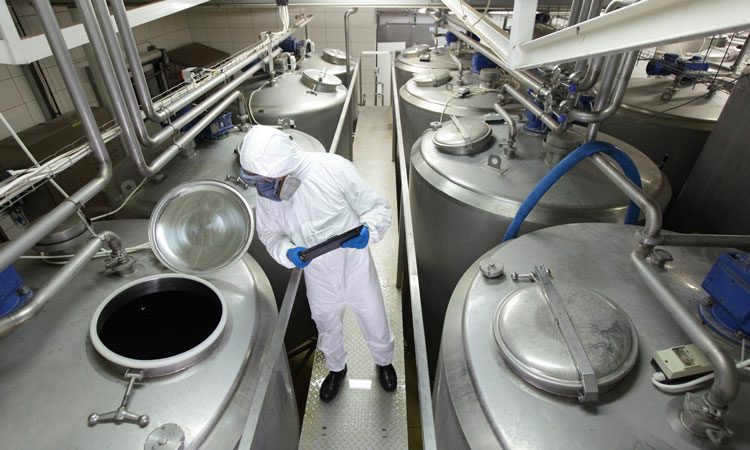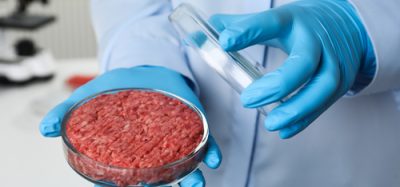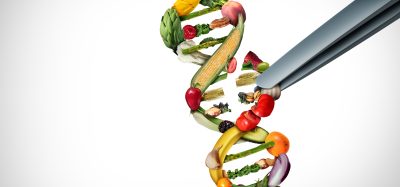Ensuring global food safety and hygiene compliance
- Like
- Digg
- Del
- Tumblr
- VKontakte
- Buffer
- Love This
- Odnoklassniki
- Meneame
- Blogger
- Amazon
- Yahoo Mail
- Gmail
- AOL
- Newsvine
- HackerNews
- Evernote
- MySpace
- Mail.ru
- Viadeo
- Line
- Comments
- Yummly
- SMS
- Viber
- Telegram
- Subscribe
- Skype
- Facebook Messenger
- Kakao
- LiveJournal
- Yammer
- Edgar
- Fintel
- Mix
- Instapaper
- Copy Link
Posted: 23 August 2018 | Darren Ralphs (Russell Finex) | No comments yet
As the global food safety testing market increases, companies must focus on hygienic food processing equipment to meet regulations…


The threat of foodborne illnesses has led to the implementation of strict food safety regulations. According to the World Health Organization (WHO) it is estimated that one in 10 people suffer from a foodborne illness every year. More worryingly, 420,000 people around the world die each year from such illnesses, including 125,000 children, who are more at risk.
With the globalisation of food production and supply continuing to increase, manufacturers are under pressure to ensure their food products meet the requirements of not only their own country, but international food safety authorities. Food safety refers to procedures and regulations to prevent the contamination and poisoning of food products. This necessitates meeting specific requirements in terms of preparation, handling and storage of food, to ensure the risk of foodborne diseases is reduced, which are enforced by bodies such as the FDA, USDA and 3-A Dairy and Food. Accredited testing services and laboratories are in place to ensure these requirements are met, and equipment manufacturers work closely with these bodies to identify and meet standards.
In short, the continued growth and success of the global food industry is reliant upon these global testing regulations. Lack of sufficient food testing can increase the risk of foodborne illnesses, which in turn can lead to the outbreak of disease, resulting in lasting damage to companies’ reputations, as well as costly product recalls or shutdown of production lines. With the stakes so high, it is no surprise the food safety testing services market is expected to see huge growth over the coming years, forecasted to reach over £12.6 ($17) billion by 2021.
Progress in regions where food safety testing is already established is expected to anchor this growth, as companies continue to be audited to meet standards under the Global Food Safety Initiative (GFSI). The Food Safety Modernization Act (FSMA) in the US in 2011, as well as measures put in place by the Food Standards Agency (FSA) and European Food Safety Authority (EFSA), has increased the demand for food safety testing services in North America and Western Europe. However, developing countries still suffer from a lack of regulation and proper testing mechanisms, which can compromise trade between territories and provide problems for the growth of food safety testing services.
Things are slowly improving, however, with the Asia Pacific region as well as emerging nations such as China, India and Brazil starting to see significant growth in the food safety testing market. This is driven through increased awareness among all parties – from governments and authorities to the consumer – of the importance of safe food products, as well as the need to protect the environment. This growing concern over food safety and sustainability will continue to see governments around the world invest further in food safety regulations.
Taking the FSMA as an example, this act was implemented following several high-profile cases that severely impacted the trust of consumers. The act includes various rulemakings and guidance documents to better protect food products in terms of prevention mechanisms, inspection and compliance and recall authority. It also establishes safety standards that make importers of food products responsible for the quality of imported goods.
When considering prevention mechanisms, sanitation control is a key concern for food manufacturers. Key concerns lie in the quality of incoming materials, condition and cleanliness of food-contact surfaces, prevention of cross contamination and the control of employee health and hygiene. As modern-day processing technologies continue to develop, a range of sanitary and contained food processing equipment is now available to meet food industry regulations.
Raw material handling
The raw materials used in the manufacture of food products should be checked before entering a production line. Despite regulations increasing to protect manufacturers when importing raw materials from developing countries, certain procedures can be put in place to ensure the quality of raw materials and food ingredients used at entry point. Quality checking at this stage not only protects the food product itself but can also protect downstream equipment and the risk of cross contamination. A range of check-screening and quality control solutions is available for auditing incoming materials, removing contamination before it can enter the process line.
Condition and cleanliness of food-contact surfaces
The cleaning of any equipment and surface that comes into contact with food is an integral part of any sanitation programme. In some instances, these programmes are not always fully carried out, due to tiresome cleaning procedures, cumbersome machinery or equipment that is difficult to fully sanitise. A variety of of sanitary sieving and filtration solutions have been developed to meet food industry processing requirements in terms of sanitation. A range of vibratory sieving equipment, grading separators and inline liquid filtration has also been engineered to provide manufacturers with machinery that is quick and easy to dismantle and clean, without the need for tools, designed with minimal food-contact parts which are crevice-free.
Prevention of cross contamination
Cross contamination can be a factor in the spread of foodborne illnesses. Contamination can be spread through various entry points, from equipment and production areas to operators and product containers. The sanitary design of a food production line is also an important part of preventing cross contamination, addressing both bacterial and allergenic issues. In addition, these vibratory screeners, grading separators and industrial filters can be fully-enclosed to protect products from contamination, as well as eliminating the spread of potentially harmful dust and fumes into the production environment. Russell Finex equipment has been designed to meet the requirements of food safety authorities.
Control of employee health and hygiene
As well as monitoring the materials and equipment used in food manufacture, it is important to protect production operators, and ensure the equipment is user-friendly and safe. Enclosed sieving and filtration equipment not only protects the product from potential contamination and the spread of illness from food handlers, but in turn protects the handlers themselves from potentially harmful dust and fumes. Moreover, as well as providing equipment that is easy to disassemble and clean, a range of safety sieving equipment is available to meet manual handling regulations.
Related topics
Food Safety, Hygiene, Quality analysis & quality control (QA/QC), Supply chain, Technology & Innovation









